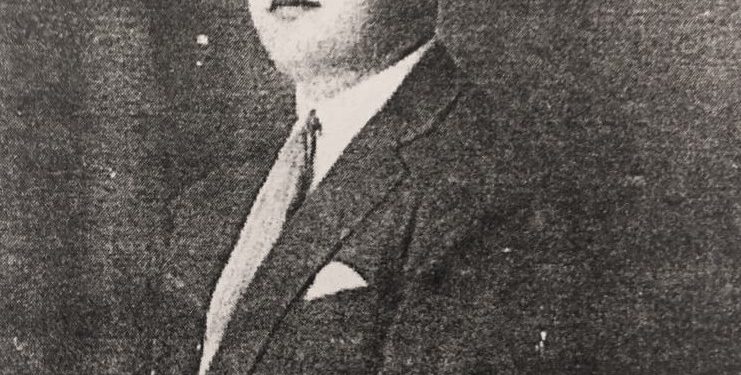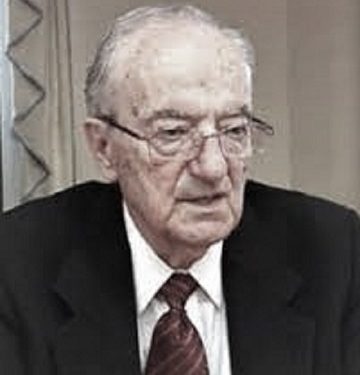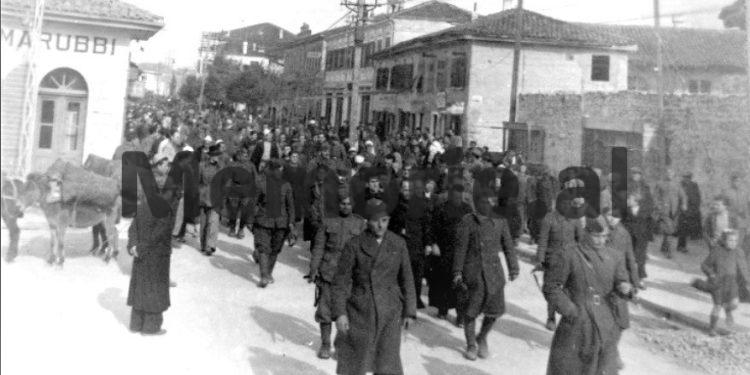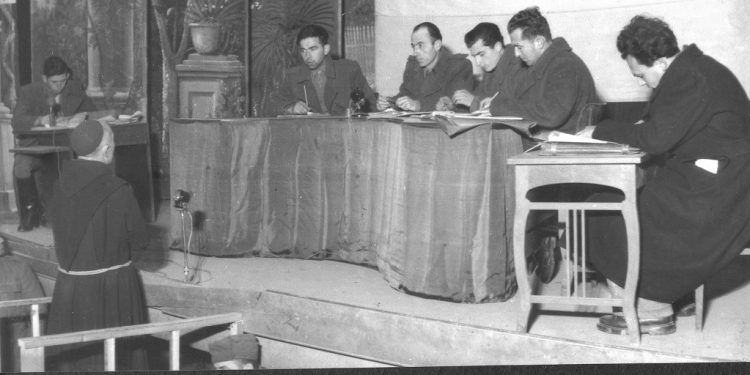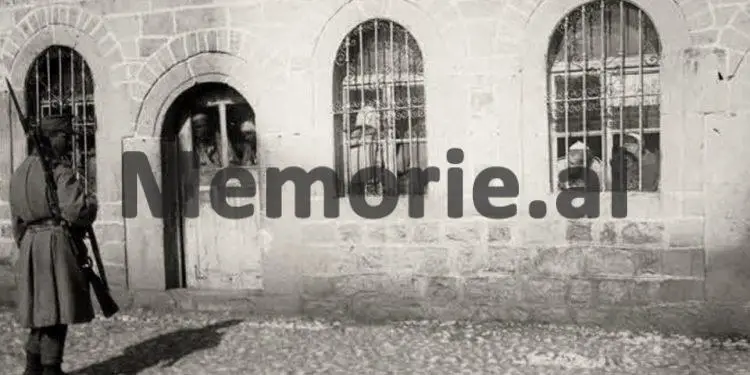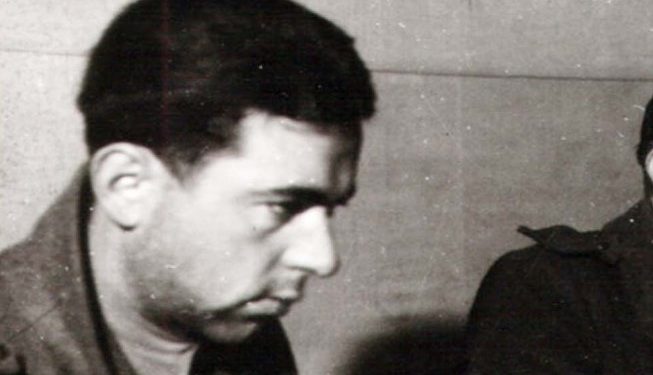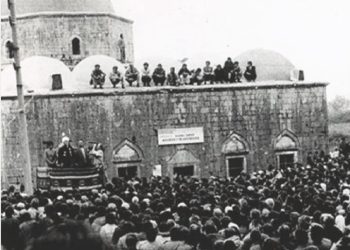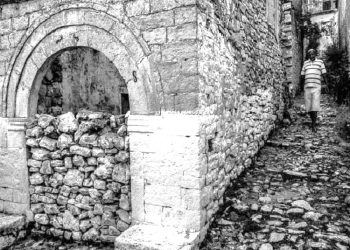By Sami Repishti
Memorie.al / These memories that we are publishing below in this article, are authored by Prof. Sami Repishtin, who was arrested in 1946 in the city of Shkodra by the forces of the People’s Protection Division and after 14 months of torture, was sentenced to 15 years of political imprisonment. After serving his sentence, he was released from prison in 1956 and managed to escape to what was then Yugoslavia, where he was again sentenced to prison. Then he immigrated to Western countries and finally settled in the USA as a political asylum seeker, where he currently lives with his family. The memories left by Prof. Repishti, are for Cin Serreq, who was arrested in 1946, (accused of participating in the ‘Postriba Uprising’) and after being held for some time in the interrogator, being tortured in the most inhuman way by Captain Fadil Kapisizi, etc. , although he did not accept any of the charges, he was brought to trial where he was sentenced to death by firing squad and executed at the end of 1947. These memories come after the request made a few years ago by the daughter and son of Cin Serreqi , (Dorota Serreqi Lako and Filip Serreqi), who found the opportunity to publicly thank the respected professor for the willingness he showed, and at the same time making an appeal to the entire Albanian society, not to forget the suffering and persecution that they have gone through of Albanians, so that they don’t happen again.
First of all, I am glad that the deceased, an innocent victim, Cin Serreqi, left behind children who are still alive, at least without fear. To all the members and heirs of that martyr, victim of innocence in Albania, I send my deepest condolences and at the same time I wish all the best and only good days forever, in their lives and that of their families. They deserve it.
For the late Cin Serreqi, I have some memories that will not fade. Of course, they are strong and painful, but we are adults now, I believe even mature, and we have enough strength to face news and events that break our hearts.
It must have been around the middle of Nandor, when one day in a corridor of the State Security (the Church’s house, as they called it then), they found the late Cin. They put him in a corner. He opened the bed and covered himself with a quilt, without saying a word.
In a small hole under the stairs, lawyer Paulin Pali was suffering, roaring all the time from the wounds he received and from the broken shaft of his spine, which had torn his almost two-meter-long body in half. They had put me on a shelf without a cover, lying down and silent from the pain and fear that had covered the whole of that unfortunate mortuary building.
For several hours, no one dared to start a conversation. Around dinner time, we were given something to eat from the food that the house brought. But, dinner was usually the most inappropriate time to eat, because the tortures usually took place after dinner, in the late hours of the night.
A guard asked: “Who is Cin Serreqi?” The deceased Cin put out his head and answered: “Me”. “Take this,” said the guard, “you got it from the family.” With all the terror he was living with, he answered humanly: “Thank you.” “Take it, dog” – repeated the guard – don’t thank me” and left. When night fell – there was no light in the corridor – we started to move.
I got off the shelf and approached Paulin Paul’s whole, asked him if he wanted anything (he didn’t get anything from home). He told me he was very thirsty. I gave him a small cup of yogurt. He was overjoyed.
“They killed me completely”, – he told me – they are killing me not with a bullet but with torture”. I told him my name, and he wanted to talk to me longer, but I didn’t have the courage to sit next to him, for fear of the guard who was constantly moving.
– “How long have you been here”, – the late Cin asked me. He learned my name from the guard.
-About a month, – I answered. “Did they torture you”? A lot, – I answered you, I am overwhelmed.
“Who tortured you”? Almost all in a row or as a group. But the one who tortures me every day is Captain Fadil Kapisizi. He smiled. “We have his family as housemates.” I told him: “Why are you torturing me? We have also been housemates. You know me.” But he didn’t want to know, about anything or anyone. “How do you feel”? I asked her. I’m better today. I do not have pain”. From the outside it looked good, although it was hard to tell in the lack of light.
There were no wounds on his face and he moved without difficulty, which indicated that he had no broken legs, ribs, or arms. But what caught my attention was a certain complete submission, like a man who has lost the will to live. I later found out that they accused him of the Postriba Movement, something he denied with all his might.
“I don’t have anything, and I don’t have any relationships. I didn’t know anyone from Postriba. I don’t know why they told me this…! Dom Nikoll Deda came to our house, for a visit, as a housemate, and we didn’t talk about politics. They called this visit a conspiratorial meeting, where the plans for the uprising were worked out, and this is the only accusation that deserves to lose my life…”, Cini told me!
He rested for a while and started again: “I understand that a dirty and dangerous game is being played here. They want to eliminate some people who, in their opinion, show danger, and I am afraid that I will be one of them…”!
I couldn’t see his facial expressions very well because it was dark in the corridor. But after saying these words, he lay down and covered his head. I didn’t hear anything. Maybe he was crying silently. The next day, when the light came out, I saw it better. He did not look bad and did not give the impression of a man suffering from torture.
Since they did not torture him in the morning (the officers tortured at night and slept during the day), we were able to feel more at ease, at least until the evening. Then we exchanged some thoughts with the late Cin and Paulin Palin. Paulini complained that they had taken him by boat to Italy and now they accused him of wanting to leak state secrets abroad.
He had the trial material of the Associations of Father Faust and Christian-Democrats with Father Gjon Shllak at the head. They asked for connections with foreign embassies and he didn’t give them, because he didn’t have any connections.
Thus the torture continued. But Paulini had almost died in torture and with his body torn in the middle and in great pain; he walked on his hands and feet to go to the toilet (when we were allowed).
The deceased Cin, walked straight but was silent, without speaking a word, neither when he went nor when he came. At some point we started a very careful conversation again. His concern was his family and its fate. He was afraid that they had been deported – I don’t know why – and he was crying about their plight in exile. “I feel very sorry for them”, he said.
“They are still lost and they suffer because of me…! The only thing I can say is that I have not committed any violation of the law, and no activity against this government. For this I have a clear conscience…!
I did not cause these miseries for myself and for them…! This relieves me somewhat, because I am not guilty…! But of course I was a merchant and maybe that’s enough…”!
Often times Cini thought about the situation in general and despaired of the secret, very secret form of our condition. “I don’t believe that there are people outside… I said it here in Albania, that there certainly aren’t any in the outside world… so that they are aware of what is going on here…!
I’m afraid that we are unknown victims to others, and yet our lives are at risk for nothing…! Because I have nothing to deserve this treatment…”!
Sometimes he was very angry, as if he predicted that he would be killed.
“All this anger against me”, – he said – cannot be explained, unless they decided to make me disappear…!
I don’t remember how long we were together, but it must have been a few days. They took him one day and I didn’t see him again until the day of the trial, 21 December 1947, in the courtroom of the former cinema. He was chained together with Dulo Kali. I was part of the group and I was connected to a villager from Berdica.
When we sat down in the docks, he looked at me, smiled a little and bowed his head. This has been one of the most difficult scenes I have experienced. It was clear that he had succumbed to fate, and his fate was tragic. It seemed that he was convinced that he would be shot, but he did not understand why…! Perhaps this dilemma troubled him a lot. But he seemed calm and decided not to let him down.
During the Prosecutor’s questions, (Namik Qemali), he answered briefly and did not agree to have a meeting, or to have acted against the government. They attacked him, he was silent. His outward composure, (God knows how he felt inside), was truly heroic.
Those who have not experienced such moments cannot imagine or understand how it is possible that an innocent individual faces the risk of death due to false accusations…that even the government knows are false.
The last time I saw him was the day of the decision (November 27, 1947), when they pulled us in trucks and took us to the prison cells, separately. There they separated us. Of the 22 imprisoned, 9 were sentenced to death. They were separated from us and locked in their cells, isolating us again.
In my cell, alone, I could not get rid of these painful memories and the comedy of the communists with a tragic ending.
Now that I am writing these lines, I remember the words of Pope John Paul II, at Rinas airport in 1993, who said: “What is happening here in Albania is not like anywhere else. Europe must know this and must not forget it”!
It is a simple but deeply tragic truth, a tragedy that deepens even more today with the immaturity and irresponsibility of Albanian society, to learn from the past, starting with respect for the victims of the communist plague.
The family members of the late Cin Serreqi, a victim of communism, can be comforted today, however little, with his memory as an honest man, until death, an innocent martyr and a painful parent, who in the most difficult moments of his life, he was more concerned about the fate of his family members than his own. For me, he remains an excellent example of sincere citizenship and civil courage./Memorie.al




